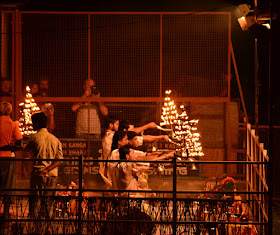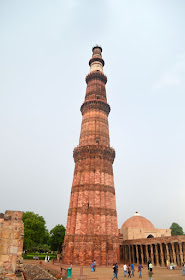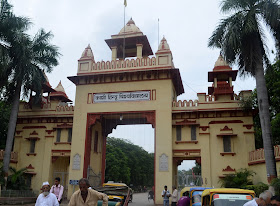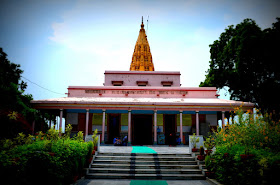The Worship of Rivers : In Temples in India,
Aarti is offered to the presiding deity.
Aarti, a ritual rooted in Vedic culture is a
pooja(worship) to the image/statue of the deities. But have you ever observed the worshiping of a river? In Karnataka, I have seen the river Kaveri being worshiped in Talakaveri. It is worshiped there in a small shrine. Thus, worshiping of natural forces is one of the central aspects of
Sanatana Dharma.
Ganga, The Eternal River : Ganga, the 2,525 km long river is worshiped throughout its course, especially at important pilgrimage centers in northern part of India. I had witnessed
Ganga Aarti for the first time couple of days ago in
Prayag.
Ganga Aarti, a visual spectacle, is not to be missed if you are travelling along the course of river Ganga. Waving of light emanating from the multi wick brass lamps with rhythmic ringing of bells and chants forms one of the spectacular shows on earth!
 |
| Ganga Aarti at Dashashwamedh Ghat, Varanasi |
Aarti at Dashashwamedh Ghat : Ganga Aarti is performed at two sites in Dashshwamedh Ghat simultaneously. Soon after
Ganga Snan, we were near one of the sites of performance. Usually
Aarti is performed at the ghat near the steps leading to the river Ganga. As the river had flooded the shores, alternate arrangements were made.



